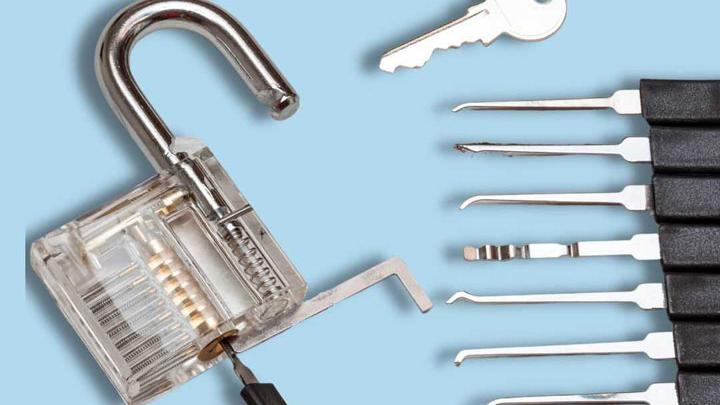How to Use Practice Locks to Hone Your Lock Picking Skills
2025-07-15 15:18

Lock picking is an intriguing and valuable skill, often associated with locksmiths and security enthusiasts. To master the art of lock picking, one of the most effective ways is to use practice locks. These locks are specifically designed for training, offering a safe and controlled environment to improve your techniques. Whether you're a beginner or an experienced practitioner, practice locks can help you refine your skills and build confidence. Here's how to use them effectively to hone your lock picking abilities.
What Are Practice Locks?
Practice locks are unique locks made specifically for training. Unlike regular locks, they often feature transparent casings, allowing you to see the internal mechanisms—such as pins and springs—at work. Some locks offer adjustable difficulty levels, making them suitable for beginners and advanced users alike. Using these locks, you can practice lock picking without the risk of damaging real locks or spending money on replacing them. If you're looking to get started, you can buy practice locks at barhomevip.com, where a variety of practice locks are available to suit your needs.
Why Practice Locks Are Important
Using practice locks is essential for mastering lock picking because they allow you to experiment without consequences. They provide a hands-on way to understand how locks work, how to manipulate pins, and how to deal with common obstacles. Practice locks also help you learn about the internal components of different lock types, which is crucial for improving both your skills and speed.
Step-by-Step Guide to Using Practice Locks
1. Choose the Right Practice Lock
When starting, it’s best to choose a transparent practice lock. These locks are ideal for beginners because they allow you to see the internal pin structure and understand how your picking tools interact with the lock. Once you're comfortable with basic techniques, you can move on to more complex locks with adjustable pin settings and other features.
2. Learn the Basic Tools
To practice lock picking, you’ll need a few essential tools:
•Tension wrench: The lock is rotated using this instrument.
•Pick: A tool for working with the lock's internal pins.
•Rake: A tool to quickly set pins by sweeping through them.
Start by using these tools on your practice lock, and focus on getting a feel for how they work in tandem with the lock mechanism.
3. Master Key Techniques
Two primary techniques will help you get started:
•Single Pin Picking (SPP): This technique involves lifting each pin to the correct height, one at a time, feeling for the slight click that indicates a pin has been set.
•Raking: A quicker method where you sweep the rake tool through the lock to set multiple pins simultaneously.
Using your practice lock, try both techniques to find which suits you best. To gain comfort, start with raking and work your way up to single pin plucking for more accuracy.
4. Increase the Difficulty Gradually
As you become comfortable with basic techniques, challenge yourself with more difficult practice locks. Many practice locks come with additional features, such as security pins or adjustable difficulty settings. These locks simulate real-world scenarios, such as pin delays and false sets, which will help you learn how to deal with advanced lock picking challenges.
5. Focus on Feedback
Lock picking relies heavily on tactile feedback. With each attempt, pay close attention to how the pins feel under your pick. You should be able to sense when a pin is set correctly or when the lock resists. This feedback helps you develop a sharper sense of touch, which is key to improving your skills.
Patience is Key
Lock picking is not a skill you’ll master overnight. It takes a lot of practice, perseverance, and patience. Don’t get discouraged if you struggle at first. Your ability to feel and react to the lock will become more intuitive as your muscle memory improves over time. Practice regularly, and challenge yourself with harder locks as you progress.
Conclusion
Practice locks are an invaluable tool for anyone looking to master lock picking. By starting with the basics and gradually increasing the difficulty, you can steadily improve your skills and gain confidence. Whether you're a beginner or an experienced lock picker, using practice locks will help you understand the mechanics of locks, fine-tune your techniques, and become proficient at this skill. With regular practice and patience, you'll be well on your way to becoming an expert lock picker.
 Promotion: 5% Discount Code: 5vip
Promotion: 5% Discount Code: 5vip